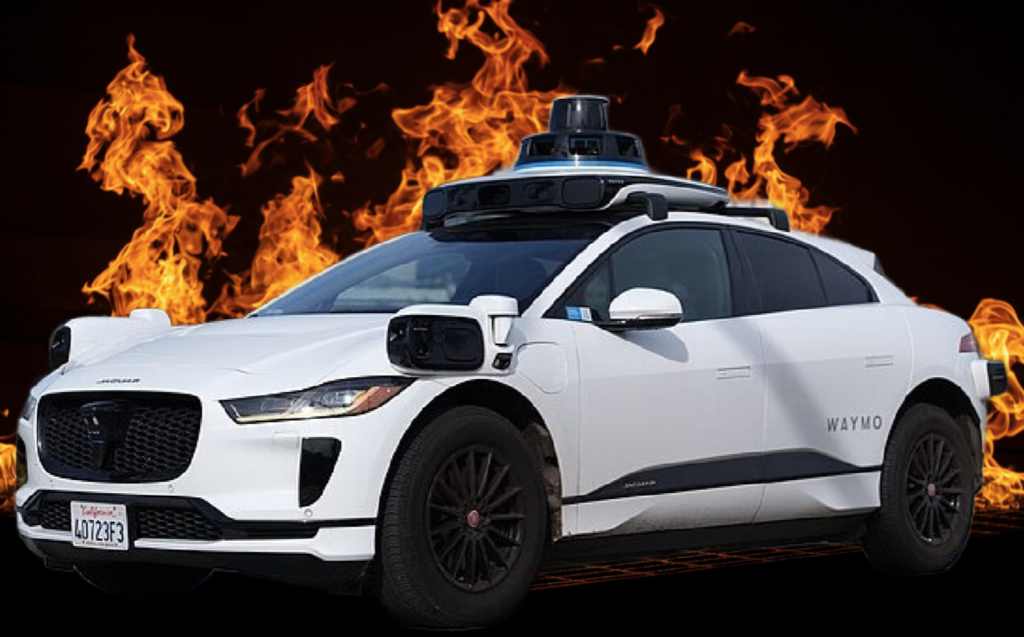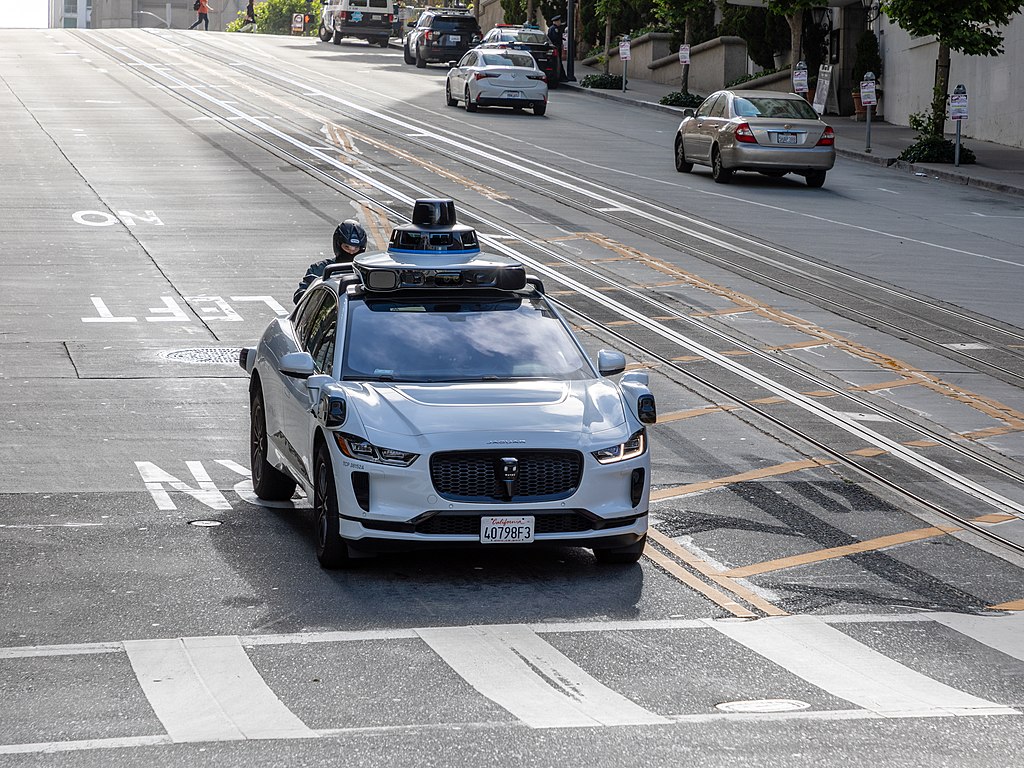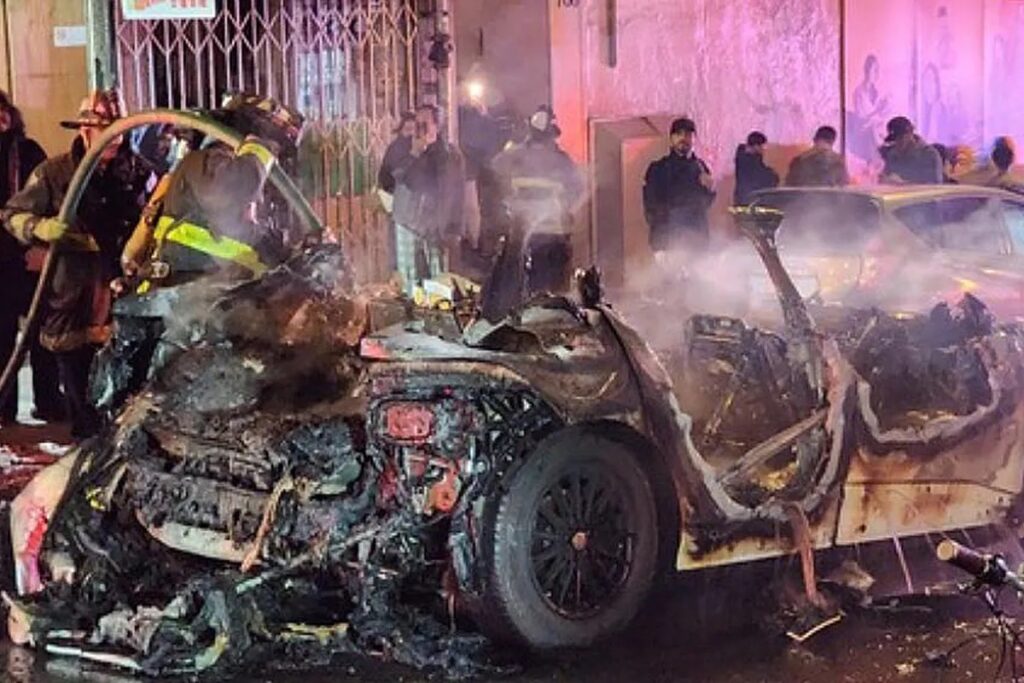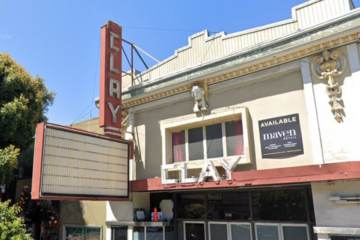What San Francisco’s Mayor Got Wrong About The Burnt Waymo Car

Ongoing private surveillance by one of the world’s largest companies doesn’t feel great. (Dllu, CC BY 4.0, Ricardo Gomez Angel)
The wonders of the modern world, no matter the wonder or the era in question, have often come at a steep cost. Take the bicycle, cemented in the world economy when Scottish inventor John Dunlop zhuzhed up his son’s two-wheeler with a bit of tread; The rubber brought to Europe came from Belgian-extracted rubber tree plantations in the Congo, conditions so horrific they inspired Joseph Conrad’s Heart of Darkness. A smartphone, almost everything inside the sleek and hip Apple Stores, comes on the back of cobalt miners and children clocking their 12th hour working as “more than 95% of iPhones, AirPods, Macs and iPads are made in China” according to Forbes.
It is from this trajectory, this endpoint of unstable and illogical supply chains, that a Waymo car was burnt over Lunar New Year weekend in San Francisco’s Chinatown. Some have taken the chance to say it’s an example of poor city leadership, another knock on woke politics from Fox News. Others, including Mayor London Breed writing an opinion piece for the San Francisco Standard, were quick to dismiss the action as “vandalism with no message or intent attached.”
I have no secret information regarding the incident on Jackson Street near Grant Avenue, nor am I assigning something specific to this event. But I don’t need names or intentions to understand the context. I live in San Francisco. I, too, am a citizen constantly surveilled by enormous private companies. And I understand locals’ frustrations are boiling over in the face of total disregard for residents’ rights and futures.

When did the motorcyclist behind this Waymo car consent to an onslaught of photo and video? (Dietmar Rabich)
Don’t believe the mayor: This incident is as dramatic as it seems. Nowhere in her opinion piece does she condemn Waymo, a company owned by Google parent company Alphabet, for its ongoing traffic and legal violations. Again, I wasn’t there that night. But I live in a city where cars from billionaire-owned DoorDash, Amazon, Uber, Waymo, and Cruise park in front of local transit as the train conductors and bus drivers blare their horns. Waymo cars were recalled for the first time in Phoenix on February 14 after colliding with two cars, and in June 2023 the company killed a small dog in San Francisco. There are no consequences for these daily disruptions. But this is not a luddite treatise on the dangers of technology.
These innovations certainly are exciting for humanity and, if there are safe and transparent ways to develop them, that’s phenomenal. I mean, look how positive the outcomes were from the military working with UC Berkeley. No, I’m talking expressly about market-driven deals made with politicians to strip away rights from citizens. In the European Union (EU), Alphabet isn’t given half the leeway it’s given in the Bay Area, the EU slapping billions of dollars in fines against the surveilling forces. In 2022 the Digital Markets Act found Alphabet “possibly unfair” and, as of March 2024, the EU mandated the company to allow users to unlink the tracking services central to selling data at top dollar. On quite the opposite end of citizenry, the United States actually gives billions to these companies, one of the highest-paying customers being the Pentagon.
Even wunderkind Open.AI requires similar brazen law-breaking to train its new Prometheus, the much-hyped ChatGPT. To train the technology, the tech firm uses privately-owned and protected intellectual property with wonton abandon. A judge in February 2024 found a direct copyright infringement case brought by a group of authors against the company to be legitimate, but, much like lawmakers in San Francisco with these camera-studded cars, said those whose property was stolen “could only speculate about what injury was caused.”
This ambiguity is the crux of the Waymo burning incident. This is why the car was obliterated by fireworks and flame, and why it was neither an example of a lawless city run by progressives — which San Francisco certainly isn’t — nor a meaningless sacrifice to party-goers in Chinatown. People are confused and upset about which Big Brother is watching them and why.
One small example to drive the point home: I, nor any private citizen, could drive at a snail’s pace photographing and filming all my surroundings, park with my hazards in front of local transit ad infinitum, nor strafe people in Cruise’s case, or dogs in Waymo’s, without being at the very least fined. Those fines are not ever been laid against these companies in San Francisco. If not clear, San Franciscans themselves are the profit batteries in this Matrix-style market equation. It is images and videos of our faces, bodies, and homes mined and sold, to whom and for what purpose we’ll never exactly know.
As long as there is money to be made, governments are happy to fudge the rules. Our daily conditions are not as grim as plantations or mines, but the ethics of these decisions, and the blatant ass-covering by officials to make this seem like a mere blip on the radar, are troubling. The conditions of supply chains that trade in brutally-extracted raw commodities, in this case data, are usually as rough as the unrefined material themselves. Our civic societies, in grasping any part of how unjust these systems really are, react in unflattering but powerful spurts. As essayist Jesse McCarthy wrote of trap music in Who Will Pay Reparations on my Soul?, “It is the funeral music that the Reagan revolution deserves.”

Howdy! My name is Katy Atchison and I'm an Associate Editor for Broke-Ass Stuart.
I want to take the time to say thank you for supporting independent news media by reading BrokeAssstuart.com. Supporting independent news sources like Broke-Ass Stuart is vital to supporting our community because it amplifies the voices of a wide variety of diverse opinions. You also help support small businesses and local artists by sharing stories from Broke-Ass Stuart.
Because you're one of our supporters, I wanted to send over a pro-tip.
Our bi-weekly newsletter is a great way to get round ups of Broke-Ass Stuart stories, learn about new businesses in The Bay Area, find out about fun local events and be first in line for giveaways.
If you’d like to get our newsletter, signup right here, it takes 5 seconds.








